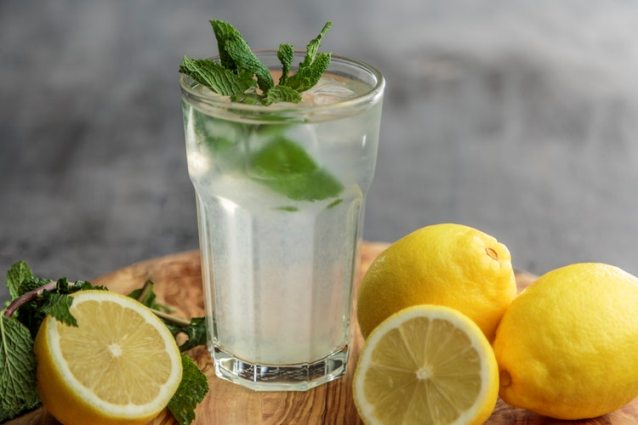Bitter taste in mouth: Causes and Home remedies
Noticing a bitter taste in mouth and dryness is quite frequent. Today we will see the different causes that cause it, as well as the best home remedies to avoid this unpleasant taste.
Any change in our saliva, breath or taste in the mouth can be a sign that something is not going well with our health. Feeling a bitter taste in the mouth can often be a symptom commonly associated with gastric diseases, however, some conditions of the liver and mouth can also cause it.
Many people tend to have a bitter taste when they wake up or after eating as a temporary symptom, while others usually have this discomfort permanently. In any case, it is important to go to the doctor to obtain an adequate diagnosis and treatment.
Table of Contents
Causes of bitter taste in the mouth
Oral bacteria
In the oral cavity there are a host of bacteria that are daily removed through tooth brushing, dental floss and mouthwash.
Poor cleaning can cause bacteria to accumulate excessively in the teeth and gums causing diseases such as deep decay or gingivitis (inflammation of the gums).
Bacteria feed on sugar from food, which is why it is so important to brush your teeth after every meal and to use dental floss to remove the residues found in more complicated places.
When a person suffers from periodontal disease such as gingivitis or periodontitis, their gums usually bleed, which generates a bitter taste in mouth and bad breath. Visiting the dentist once a year is essential to preserve oral health.
Indigestion or dyspepsia
When digestion does not occur properly, the bitter taste in the mouth after eating is one of the first signs. Detecting if this is the cause of your discomfort is very simple, because indigestion causes more important symptoms such as nausea, heartburn, pain in the pit of the stomach, diarrhea and even reflux.
When indigestion is constant, it is worth reviewing our eating habits, since meals made of fat and starch are the most difficult to digest. It is also advisable to make an appointment with the gastroenterologist to rule out another series of conditions that are causing dyspepsia, such as gastritis or stomach ulcers.
Gastroesophageal reflux
The food passes from the mouth to the stomach through the esophagus and in that channel there is a valve or sphincter that functions as a kind of stopper to prevent the contents of the stomach from returning to the mouth.
This sphincter is a muscle that in many cases tends to be damaged and stops closing properly, allowing the stomach acids to flow into the mouth and provoke what we know as gastric reflux.
This condition is common in overweight people and pregnant women and among its main symptoms is heartburn, cough, mucus in the throat, feeling that there is something stuck in the throat and bitter taste in the mouth. To diagnose this disease it is necessary to be examined by a gastroenterologist.
Liver diseases
The liver is one of the most important organs of the human body, because it is responsible for purifying the toxins that accumulate in the body from food, which is why it is vital to have a healthy diet to preserve good liver function.
Foods rich in sugar, alcohol, saturated fats and processed foods often affect the health of the liver by preventing the body from purifying so many toxins and, therefore, facilitating the accumulation of them.
Acidity, stomach heaviness after eating, fatigue, bitter taste in the mouth and changes in the feces are some of the symptoms that may be indicating that the liver is not functioning properly or is inflamed. Among the liver conditions associated with these symptoms are fatty liver and, mainly, jaundice.
Sinusitis also causes a bitter taste in the mouth
Sinusitis is the inflammation of the tissue that covers the paranasal sinuses because of a virus, fungus, or infection. When the nasal opening is blocked as a result of inflammation of the membranes, the mucus cannot exit correctly and begins to accumulate and descend to the throat, causing mucus in the larynx and bitter taste in the mouth.
Respiratory infections and a deviated nasal septum (DNS) are the main causes of sinusitis. In case of having a deviated septum it will be necessary to correct the problem in surgical intervention. When sinusitis is caused by infection, the consumption of antibiotics and decongestant medications is vital to treat the condition.
Other causes of bitter taste in the mouth
- Diseases such as diabetes, jaundice, cancer and kidney failure make a person more prone to bitter taste in the mouth.
- The poisoning metals such as lead, copper and mercury cause a bitter taste in the mouth.
- Another reason why you can feel bitter taste in the mouth is the consumption of medications such as antibiotics, antidepressants and prenatal vitamins.
- In the case of women, the bitter taste in the mouth may be associated with a hormonal alteration due to the increase in the production of estrogen during menstruation or pregnancy.
- Any extreme stress situation can dry up the mouth so much that it ends up producing a bitter taste.
How to treat bitter taste in the mouth
Having a bitter taste in the mouth for a long time can become a very unpleasant annoyance, however, to combat this symptom it is vital to go to the doctor to perform a comprehensive health check and offer a diagnosis that allows us to find the ideal treatment.
In view of the fact that the bitter taste in the mouth is a symptom associated with multiple conditions, it is very likely that the medical specialist orders a blood test to check that everything is normal. He will also make a questionnaire with questions related to stomach, oral and eating habits.
The most important thing is that at the time of going to the doctor there is mentioned any other symptom or inconvenience that could be related to the bitter taste of the mouth, as well as the doctor will have more clear the way to follow.
Home remedies for the bitter taste in mouth
- Detoxifying the body to stimulate the optimal functioning of the liver, stomach and kidneys is a great help to improve digestion and elimination of toxins. To do this, you can eat a clove of raw garlic on an empty stomach or take a glass of warm water with lemon when you wake up.
- The depurativas drinks help release toxins effectively. Try to accompany your dinner with a juice of beet, celery, lemon, watercress and carrot, without sugar!
- Improving your eating habits is undoubtedly the best decision, it can make to help the functioning of your entire body, but especially your gastrointestinal system. Eat a portion of protein, a carbohydrate and a vegetable, cook your food on the grill, baked or steamed and prefer lean meats such as chicken, turkey and fish. Reducing the consumption of fats, sugars, flour and starch is vital to detoxify the body.
- Brush your teeth twice a day, use dental floss and do not skip the mouthwash. The health of your teeth and ggums is vital to having a normal oral taste and healthy breathing.
- Hydrate yourself correctly so that the stomach, liver and kidneys work comfortably. Drinking 2 liters of water daily will help you eliminate that bitter taste in your mouth.
- Consume citrus fruits to stimulate the production of saliva and relieve the bitter taste in the mouth.


